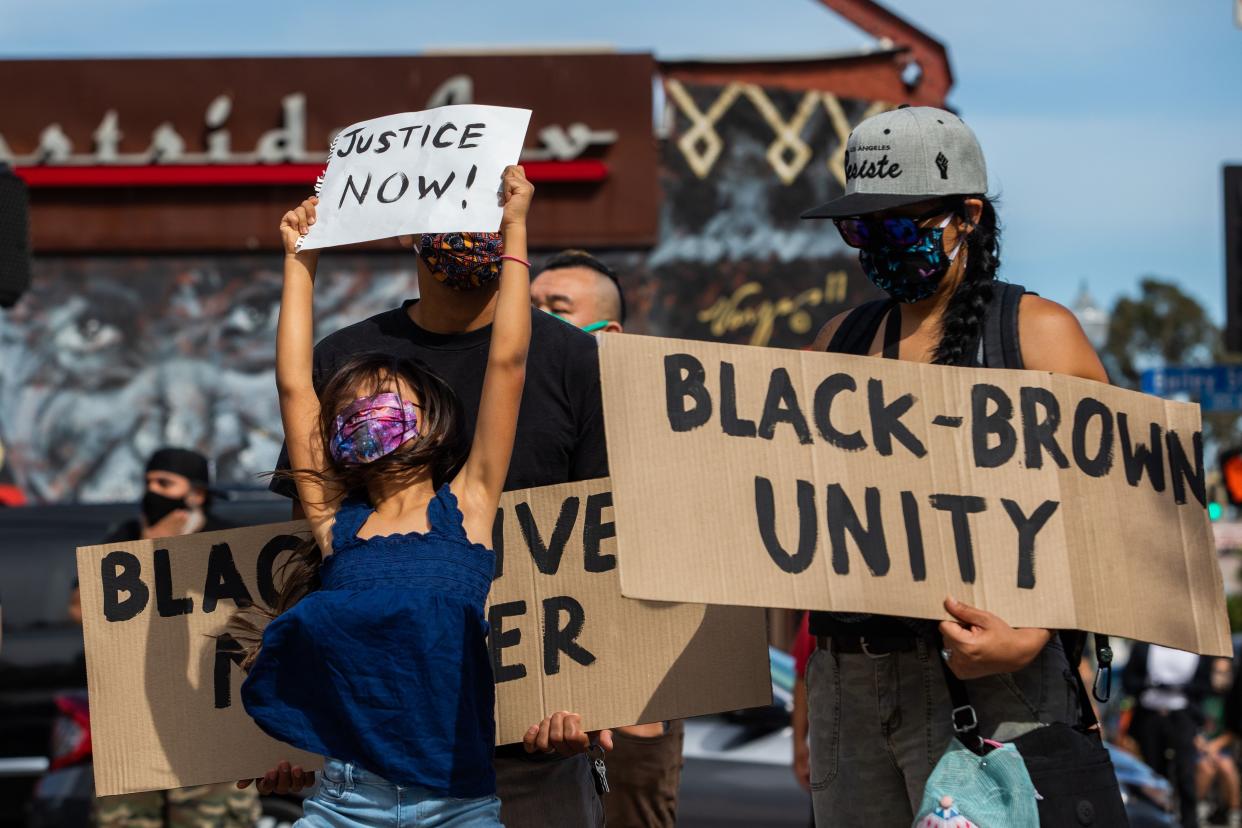Why I keep talking to my Latinx family about anti-blackness, despite them yelling, 'Why should I care?'

Chances are, if you’re a young person of color reading this, you’ve probably had to challenge anti-blackness within your families or among your friends.
I, like many Latinx folks across the U.S. this week, have had to explain and correct my family’s learned racial prejudices amid the civil unrest over just the latest high-profile incident of a black person killed by police brutality in America, George Floyd.
Remarks from “Those blacks were looting” to “Hay que mejorar la raza” (“We have to better the race”), or warnings to “stay extra vigilant” just because a group of dark-skinned men are hanging in a parking lot, are just some of the things I’ve heard this week and, to be honest, my entire life.
It is common and still prevalent today that in communities of color, there is a perpetuation of white supremacy, anti-blackness and staying silent on the issues that don’t concern “us.”
It was frustrating to have to explain to a family member why phrases or remarks like the ones mentioned above are wrong. Voices were raised and discussions got heated. “Why should I care?” yelled one family member, with another adding, “As a Mexican immigrant, I face racism too.”
And while many Latinx struggles indeed parallel those of the black experience in America, this is not a competition. These arguments take away from the focus of how the black community has constantly (and differently) suffered from structural racism in the U.S. It also takes away from our Afro-Latinx brothers and sisters who we have failed to recognize in our own culture, as well.
“What Latinos need to realize is that our oppression is bound up and intertwined with the oppression of the black community,” Jasmine Haywood of the Lumina Foundation, a Ph.D. and Afro-Latina who has studied anti-blackness in Latinx communities, told NBC recently. “Until they are liberated, until they are free from injustices and oppression, we will never be liberated.”
As the discussion with my family continued, I felt like I couldn’t get them to understand the issues. We were going in circles with the same arguments. I couldn’t get them to understand that Latinx culture (which already erases much of our Afro-Latinx history) has African roots. Or that it’s important to understand colorism (and how we’re privileged because of it) and that right now, we must listen and center those voices of those affected.
It is troubling to me how we are able to borrow a lot from black culture — from the way we dress to the beats we put in our music — but anti-blackness exists. It is troubling to see Latinx youth on social media stay trapped in the racist cycles of our parents.
But what I am proud to see is that many millennials and Gen Z-ers in the Latinx community are being vocal and standing up to their families and friends.
The hashtag #antiblackness on Instagram has over 6,800 posts and counting. Many are from different communities of color. Similarly, if you search for the term on Twitter, you get an endless scroll of people talking about the issue.
Popular Latinx Instagram sites like Remezcla and r29somos have been sharing guides on how to talk to family and friends about anti-blackness and how to be an ally. Latinx Therapy, a popular mental health social channel, has resources on how to correct these prejudices in Spanish and English, and how to take care of ourselves during this difficult time.
I can’t say how much I’ve changed my family’s opinion on things — but that’s not going to stop me from continuing to try. Making them aware of their subconscious prejudice is a good first step. Education and support to black communities comes next. And, as we are poised to become the most influential voting bloc in U.S. politics, I hope that we can educate our families in making the right calls this November.
Read more from Yahoo Life:
Want daily lifestyle and wellness news delivered to your inbox? Sign up here for Yahoo Life’s newsletter.